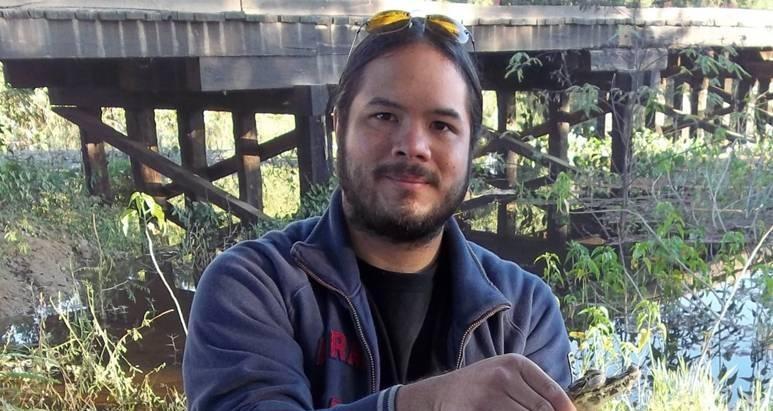Spring-Summer 2011
Assessing the landscape of fear: A study of the habitat use of the Black-capped Chickadee (Parus atricapillus)
This research project was designed to evaluate the predictions made by the landscape of fear model. This was accomplished by monitoring the feeding patterns of the Black-capped Chickadee (Parus atricapillus). Essentially, the theory states that animals will utilize their environment in terms of how safe or dangerous they perceive it. Animals will tend to favor safer areas versus risky areas even when the dangerous area provides a richer food supply. The results of such work have direct implications regarding land management and conservation practices. Habitats can be regulated in such a way as to promote the perceived safety by the resident fauna. This in turn could facilitate habitat selection by potentially threatened species.
I suppose the experience gained with this project has taught me first and foremost how to go about conducting basic scientific research. I have learned how to build up a project from the inception of an idea by utilizing academic data bases to engage in preliminary research. With this background knowledge in hand; one can then design an experiment to effectively test a given hypothesis. Data can then be collected and interpreted in a meaningful way such that the results can be presented to the academic community via article or presentation format. Aside from that, I have learned a great deal about some of the local avian populations over the course of the project.
It is strange what comes to mind when pondering this question. I can honestly say I loved conducting my research at Rice Creek. I would spend the quiet hours of the summer mornings gathering my data, which primarily involved observations of the local wildlife. However what I immediately thought of as my favorite memory while conducting research at the field station was perhaps one of my worst days of data collection. It was probably about 6:30 am and the bird activity suddenly dropped off as the sky began to darken. The sound of the approaching thunder storm coming through the forest was akin to the sound of a breaking tide. I could see the trees in the distance succumb to the winds, the sound quickly growing in intensity. And then, the heavens opened up and the full fury of the storm was upon me. It goes without saying my observations for the day were put to a halt and as far as my project goes the day was lost. However the experience on a personal level was nothing short of magnificent.
Growing up as a Navy brat, I have been able to call much of the United States my home at one time or another. I have resided in New York, Pennsylvania, Maryland, California, Hawaii, and Virginia while spending time in other states too numerous to mention here. Some of my favorite childhood playgrounds include the dark forests of Virginia, the canyons and beaches of California, and the lakes and mountainsides of Pennsylvania. On a different note, I remember science as quickly becoming my favorite subject in school. I have always had a burning curiosity to discover how things "worked" in life, and science had a way of satisfying that curiosity while simultaneously fueling it. That curiosity has served me well during my undergraduate career, leading me to my work at Rice Creek and to two separate field studies in Brazil. I will be sure to draw on that curiosity now as I take the final steps ion preparing for my chosen career in veterinary medicine.
My plans for the future, hum? Well I have just applied for veterinary school and look forward to receiving some acceptance letters soon! In the meantime I keep myself occupied with the many house projects that seem to perpetuate endlessly, as any home owner could attest to. In four years' time I hope to have obtained a Doctorate of Veterinary Medicine and begin a career in wildlife and conservation medicine. I have considered the pursuit of a PhD, but before I commit myself to seven more years of schooling I would like to start a family and my professional career. I think I will return to graduate school in time, but there are many facets in life that I now wish to turn my attention to. We shall see where the road takes me....



